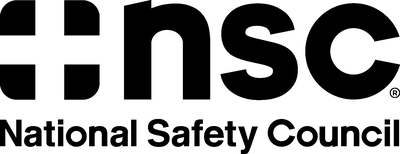National Safety Council: No Level of Cannabis Use Acceptable for Those Who Work in Safety Sensitive Positions
ITASCA, Ill., Oct. 21, 2019 /PRNewswire/ -- Recognizing that safety concerns are paramount as decriminalization of cannabis continues in states throughout the U.S., the National Safety Council calls on employers to restrict cannabis use for those in safety sensitive positions ? regardless of whether cannabis consumption is allowed by their state. In a policy position released today, NSC defines safety sensitive positions as those that impact the safety of the employee and the safety of others as a result of performing that job.

"Research clearly shows that cannabis impacts a person's psychomotor skills and cognitive ability," said Lorraine M. Martin, president and CEO of the National Safety Council. "In order to protect our employees and those around them, we need to acknowledge the impairing effects of cannabis. We urge employers to implement policies stating no amount of cannabis consumption is acceptable for those who work in safety sensitive positions."
In a 2019 NSC survey1, employers expressed the following about cannabis:
- 81% were concerned about the drug having a negative impact on their workforce
- 71% indicated their organization's written policies cover employee use of illicit cannabis, while only 54% said their policies cover employee use of legal or prescribed cannabis
- 24% indicated they would dismiss an employee found to be misusing legal cannabis, such as being under the influence while on the job, while only 7% said they would relocate the employee to a position of lesser responsibility
Studies have shown that those under the influence of cannabis can experience impaired body movement, altered senses, difficulty with thinking and problem-solving, impaired memory, an altered sense of time, changes in mood, and ? when taken in high doses ? hallucinations and delusions. Physical effects can include difficulty breathing and increased heart rate2. These effects can lead to deadly consequences for those working in safety sensitive positions and those around them. NSC supports moving employees to non-safety sensitive operational positions when using cannabis for medical purposes.
Marijuana is the most frequently used illicit drug of abuse in the U.S.3 and the drug most often detected in workplace drug testing4. Although cannabis remains federally illegal under the Controlled Substances Act as a Schedule I drug, NSC calls for an increase in cannabis research to discover a way to detect cannabis impairment and gain a better understanding of the effects the drug has on the human mind and body.
The new NSC policy position can be found here. More information about addressing cannabis in the workplace can be found here.
About the National Safety Council
The National Safety Council (nsc.org) is a nonprofit organization whose mission is to eliminate preventable deaths at work, in homes and communities, and on the road through leadership, research, education and advocacy. Founded in 1913 and chartered by Congress, NSC advances this mission by partnering with businesses, government agencies, elected officials and the public in areas where we can make the most impact.
Connect with NSC:
Facebook | Twitter | LinkedIn | YouTube
1 NSC National Employer Survey 2019: Opioid Usage In The Workplace
2 NIDA - https://www.drugabuse.gov/publications/drugfacts/marijuana
3 NIDA - www.drugabuse.gov/publications/research-reports/marijuana/what-scope-marijuana-use-in-united-states
4 Quest Diagnostics - www.questdiagnostics.com/home/physicians/health-trends/drug-testing.html
SOURCE National Safety Council
News published on and distributed by:



